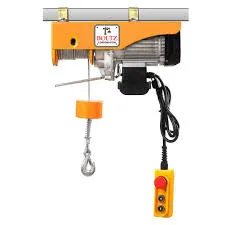


The Importance of Lifting Scales in Industrial Applications
In the realm of industrial operations, precision and safety are paramount, especially when it comes to lifting and moving heavy loads. Lifting scales play a crucial role in these environments, providing accurate weight measurements that are essential for effective material handling, load management, and compliance with safety regulations.
Lifting scales, also known as crane scales or hanging scales, are devices designed to measure the weight of suspended objects. They can accommodate various capacities, ranging from small scales for lighter loads to robust models capable of weighing several tons. These scales are typically used in warehouses, construction sites, shipping docks, and manufacturing facilities, where load management is a critical aspect of the operation.
One of the primary advantages of using lifting scales is the ability to accurately gauge the weight of materials before they are lifted or moved. This is vital for several reasons. First and foremost, it helps prevent overloading of cranes, hoists, and other lifting equipment, which can lead to catastrophic failures and workplace accidents. Overloaded equipment is not only a safety hazard but can also damage machinery and increase maintenance costs.
Moreover, accurate weight measurements are essential for inventory management. Businesses must know the exact weight of materials to manage their stock effectively, optimize storage space, and plan for shipping logistics. Lifting scales simplify this process by providing real-time weight data, thereby facilitating better decision-making and operational efficiency.

In addition to safety and inventory management, lifting scales also contribute to compliance with regulatory standards. Many industries are subject to strict guidelines regarding weight limits for transportation and handling. By utilizing lifting scales, companies can ensure they remain compliant with these regulations, thereby avoiding potential fines and legal issues.
Modern lifting scales are equipped with advanced technology features, including digital displays, remote monitoring, and data logging capabilities. These enhancements improve usability and allow for greater accuracy and convenience in the weighing process. For instance, operators can easily read weight measurements from a distance, reducing the need for manual calculations that are prone to error.
Furthermore, some lifting scales come with overload alarms that alert operators if the weight exceeds a predetermined limit, ensuring that safety measures are in place. This integration of technology not only enhances functionality but also streamlines workflows, making industrial operations more efficient.
In conclusion, lifting scales are an indispensable tool in industries that involve heavy lifting and material handling. Their ability to provide accurate weight measurements enhances safety, improves inventory management, and ensures compliance with regulations. As technology continues to advance, the capabilities of lifting scales will only improve, further solidifying their importance in modern industrial applications. By investing in this vital equipment, businesses can enhance operational efficiency and maintain a safe working environment.



